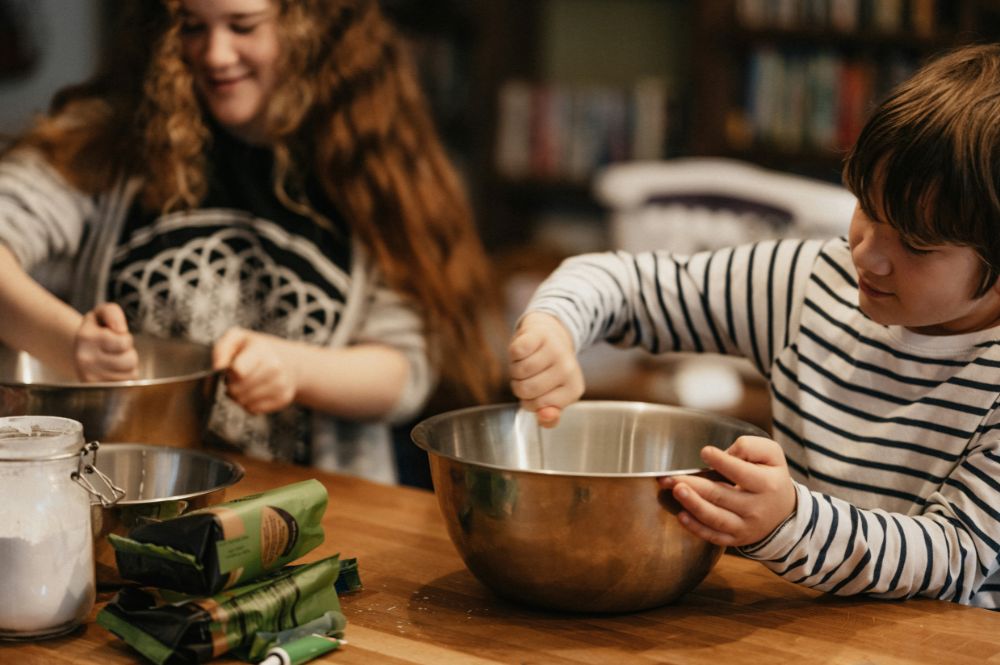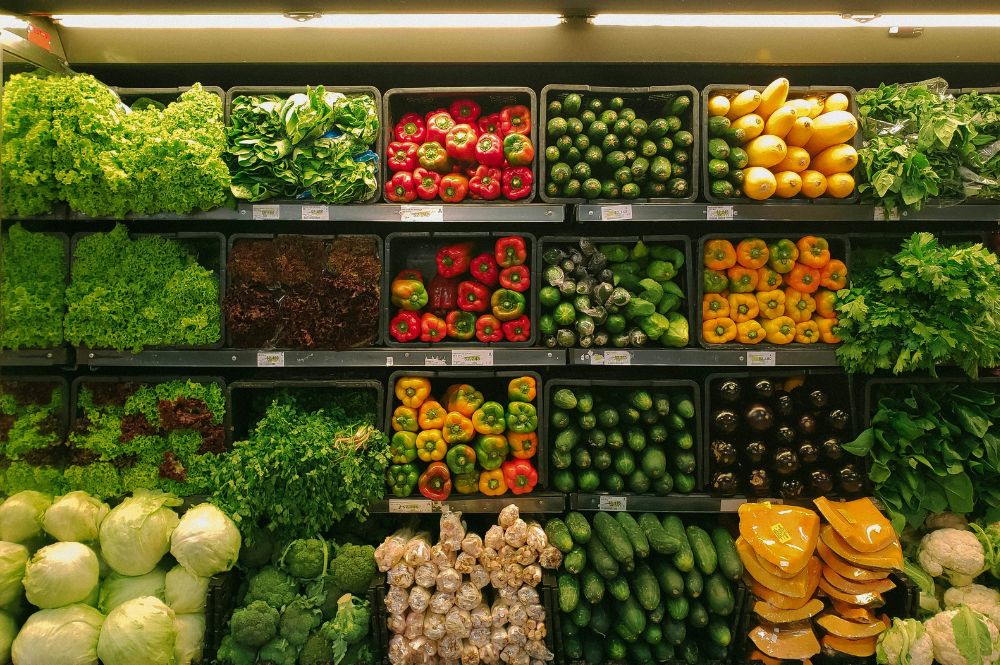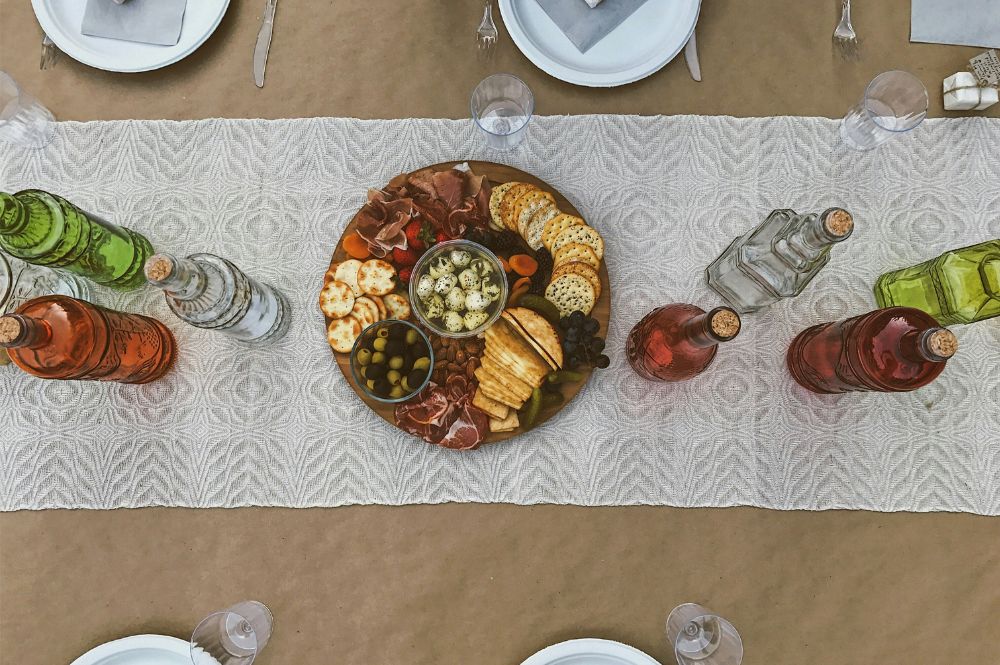
Middle school is a wonderful season to invite kids into the kitchen—they’re eager for more responsibility, curious about how things work, and ready to handle real tools and tasks with a bit of guidance. There are plenty of kitchen skills for middle schoolers that offer rich opportunities to cultivate habits of attention, service, and diligence.
Whether they’re scrambling eggs, chopping vegetables, or planning a simple meal, kitchen skills give middle schoolers a taste of independence and a growing sense of confidence and capability. They also begin to develop a deeper appreciation for the everyday work that goes into feeding a family.
Here are five practical skills that are just right for this age—and will grow right along with them.
1. Plan a Weekly Menu & Create a Shopping List
Learning how to meal plan, and then create a shopping list from that meal plan, is an important skill to learn.
If planning a week of dinners feels too overwhelming at first, have your child start by planning a week of healthy snacks. Then move on to breakfasts, and then lunches before moving on to dinners.
This skill requires some teaching on your part, especially if your family has specific dietary needs. Bring out your favorite cookbooks and recipe cards. Walk your child through how to plan a balanced meal and how to vary protein sources, types of dishes, and flavors.
Creating a shopping list from the meal plan is an important part of this life skill. Kids should be able to read the recipe, check for the ingredients in your pantry, refrigerator, and freezer, and jot down which foods you’ll need to shop for.
As with most skills you teach, it’s best to start off more hands-on, and then gradually let them take the reins.

2. Select Fresh Produce at the Store
A great next step after learning how to meal plan is learning how to grocery shop—especially when it comes to selecting fresh produce.
Teach your child how to inspect produce for bruises or mold before putting it in the cart.
You’ll also want to show them how to select fruits at the correct ripeness by looking for the correct color and feel. Smelling or gently squeezing produce can tell you a lot about its freshness and ripeness (i.e. if the grapes are squishy, you might want to pass).
3. Follow Recipes from Start to Finish
Some kids are rule followers by nature, and some are not, so this skill will likely come more naturally to those who tend to follow rules.
Learning to follow a recipe step-by-step is an excellent skill to develop. It improves attention to detail, gives kids real-world applications for math (i.e. teaspoons to tablespoons, temperature conversions, and doubling or halving amounts), and teaches them how to troubleshoot if something goes wrong.
They also experience real-life consequences on a small scale when they make mistakes. Forgetting the baking soda in a batch of muffins isn’t a huge deal, but you will end up with denser, less-than-ideal muffins. Kids will be less likely to repeat their mistakes once they’ve had a chance to make a few of their own.

4. Safely Handle Raw Meat
Knowing how to safely handle raw meat—especially chicken—is important for kids to understand early on.
Instruct them on washing hands—before and after—with warm soapy water. Show them how to use separate tools, like a knife and cutting board, to avoid cross-contamination. Remind them not to touch their face, and show them how to safely clean up their tools immediately afterward.
Let them practice using a cooking thermometer to make sure meat is cooked to the correct temperature. I like using a quick-read, digital meat thermometer with a degree guide printed on it.
5. Throw a Dinner Party
Allow your child to throw a dinner party for their grandparents, cousins, or friends! This is a great activity for them to try after they’ve mastered the basics.
Let them be in charge of planning the menu—appetizer, main course, and dessert—and shopping for it. You can even give them a budget for an added challenge! Require them to prepare the food themselves, with guidance from you.
Show them how to properly set the table if they don’t already know how. Maybe even buy some flowers for the occasion—or have them forage for the arrangement themselves.
Throwing a dinner party is a great way to give them a little independence while they learn time management skills in addition to kitchen skills. Taking ownership of a full project is a huge confidence boost—especially if everything goes well. They’ll experience the joy of serving others through their own hard work.

Building Confidence One Step at a Time
Although my oldest is currently just eight years old, we’re building a solid foundation of kitchen skills in his early years so that he’s ready to take on more responsibility as he grows. Learning to cook isn’t just about making meals—it’s about gaining confidence, responsibility, and everyday life skills.
When middle schoolers practice kitchen skills, they’re doing more than just helping out at home—they’re laying the foundation for independence, creativity, and lifelong capability.
Start small, stay patient, and celebrate their progress along the way. The kitchen is one of the richest classrooms they’ll ever have!








0 Comments